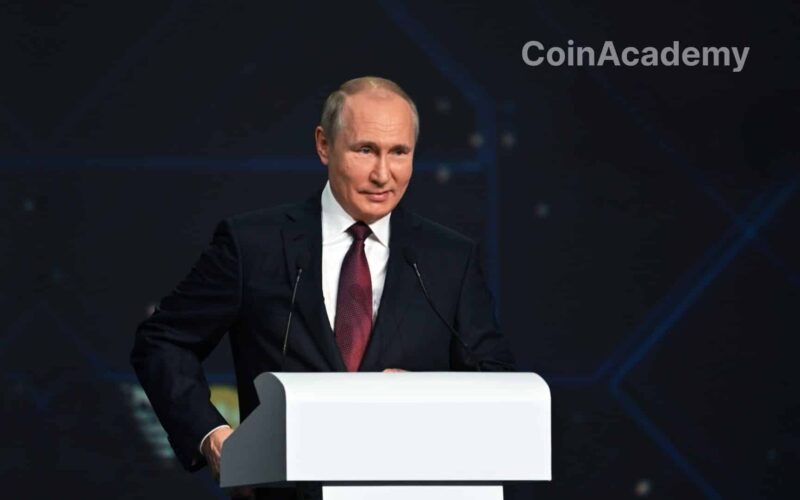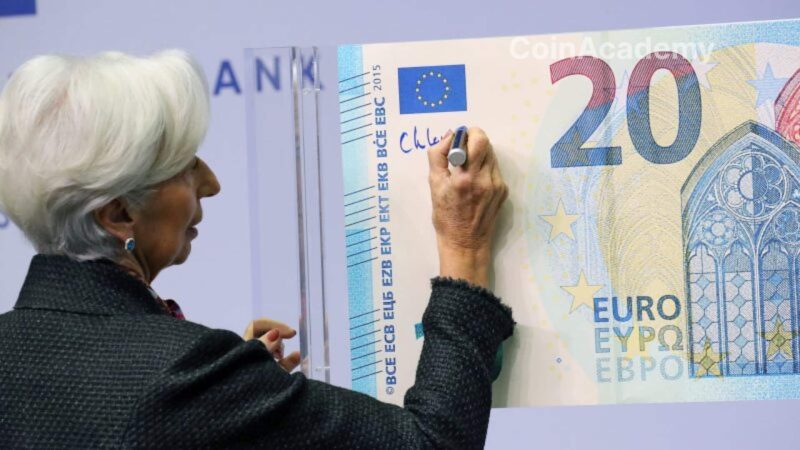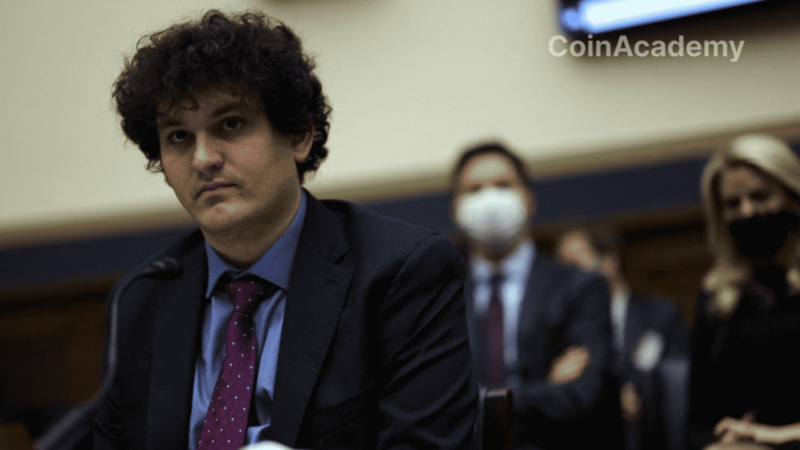La Russie has launched a pilot project to use crypto in cross-border payments, following the adoption of a law in July 2024, while banning their internal use as legal tender.
Experts doubt the effectiveness of this strategy due to the traceability of transactions on blockchains and the risk of secondary sanctions for foreign entities involved.
The law grants the Russian Central Bank extensive and flexible powers to adjust the rules, but the regulatory framework remains unclear, with many questions unanswered.
Since the invasion of Ukraine by Russia in February 2022, the country has faced a wave of international sanctions, mainly from the United States, the European Union, and other Western powers.
These sanctions have severely impacted the Russian economy, by freezing nearly 300 billion euros in foreign currency reserves and disconnecting several Russian banks from the SWIFT interbank system, making international transactions extremely difficult for Russia. Faced with this economic pressure, the Kremlin is exploring new avenues to escape the Western financial grip, and one of the latest strategies is testing cross-border payments in crypto.
A crypto experimentation to bypass sanctions
Russia is preparing to launch a pilot project in the coming days aimed at using cryptocurrencies for cross-border payments. This move comes after the rapid adoption of legislation in late July 2024, which allows the use of crypto for international transactions while maintaining the ban on its use as legal tender within the country. This new law delegates to the Russian Central Bank the power to oversee an “experimental regime” to test these crypto payments.
Doubts about the effectiveness of the strategy
Despite Moscow’s stated intentions, many legal and public policy experts are skeptical about the effectiveness of this maneuver. One of the main concerns is the traceability of transactions made on blockchains. Contrary to the common belief that cryptocurrencies are anonymous, transactions on blockchains are public and can be traced with sophisticated analytical tools. Western governments have means to monitor these transactions, which would make it difficult for Russia to conceal its economic activities via crypto.
Valerie Kennedy, Director of Investigations at Chainalysis, a company specialized in blockchain analysis, explained in an interview with CoinDesk that this legislation reflects Russia’s ongoing strategy to bypass Western sanctions. However, she emphasizes that the risks of secondary sanctions, targeting foreign entities dealing with Russia in cryptocurrencies, could make this strategy even more perilous.
In addition to regulatory and legal challenges, the issue of crypto market liquidity remains a major obstacle. Valerie Kennedy explained that crypto markets do not have the necessary liquidity to support transactions of sufficient magnitude to bypass sanctions without causing significant price crashes or attracting attention from blockchain observers. This could push Russia to adopt more discreet circumvention strategies resembling traditional forms of money laundering.
A vague regulatory framework
The law, although quickly adopted, leaves many unanswered questions. It does not specify the exact rules that will regulate these crypto transactions, leaving this task to the Central Bank. The Central Bank has yet to define the parameters of the experimental regime, in consultation with local industry players.
According to a report by Bloomberg, Russia is considering using the National Payment Card System (NSPK) to facilitate exchanges between rubles and cryptocurrencies during a test phase. If successful, the Moscow Exchange and the Saint Petersburg Currency Exchange could be authorized to create crypto trading platforms as early as next year.
The ambiguous role of the Central Bank
The most controversial aspect of this law lies in the quasi-unlimited power it grants to the Russian Central Bank to adjust or modify the rules at any time. This regulatory flexibility, described as “experimental,” is unprecedented in Russian law. This raises uncertainties about how these regulations will be applied and the future evolution of the legal framework.




